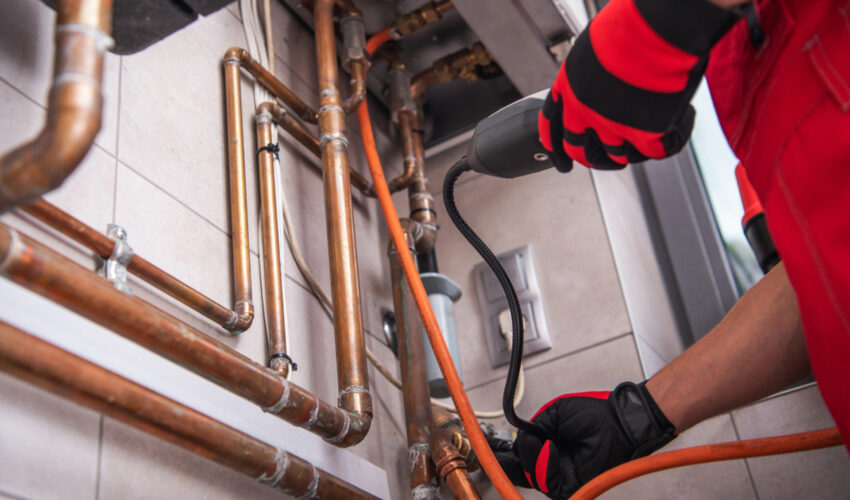More than six in 10 U.S. homes rely on natural gas for at least one energy use: water heating, space heating, or cooking. But as the lines that supply this natural gas age, they can pose problems for your home. Below, we discuss a few of the most common signs of aging gas lines, as well as what you should do to address them.
Signs of Aging Gas Lines
The most common signs that your gas lines are showing their age include:
- A rotten egg smell, which is the only true reliable sign of a gas leak
- Higher gas bills without an increase in usage
- Weak performance of gas appliances
Although natural gas is odorless, gas companies put a sulfur-smelling odorizer in the gas to ensure occupants are alerted as soon as there is a leak.
What to Do If You Suspect a Gas Leak
The most important first step is not to panic. Although natural gas is toxic and flammable, it’s generally not hazardous to have a small leak for a short period. As long as a gas leak is addressed quickly, it’s unlikely to be urgent or immediately life-threatening.
Then, assess the situation. Depending on the severity of the leak, it may be a better idea to call a plumber—not the gas company. The gas company will simply shut off the gas to your home until the leak is resolved. A plumber, on the other hand, can work to fix your gas leak and will arrange repairs around your schedule instead of immediately shutting the gas off.
Next, consider a gas test. Many factories, workplaces, and other commercial and municipal buildings must have annual or biennial gas tests to ensure the safety of their occupants; it can also be a good idea for homeowners. If your gas lines are 25 years old or older, it’s a good idea to periodically test them about every 5 years, even if you don’t yet suspect a leak.
To perform a gas test, the tester will shut the gas supply off, pressurize the gas piping system, and ask a city inspector to ensure the system holds pressure overnight.
Replacing Gas Lines
Not all gas leaks will necessitate a new gas line, but when you’re dealing with aging gas lines, replacement may be the best solution.
Replacing your gas lines definitely isn’t a DIY project. There are a few reasons for this:
- Gas line replacement and major repairs require permits with the city. Because working with gas can be risky and dangerous, government officials are unlikely to grant homeowners a permit for this work without some assurance that it will be properly performed.
- It can be expensive and time-consuming to replace gas lines. Since you can’t run gas lines through slabs, they’re replaced in the same space they currently occupy–usually the attic, inside the walls, and the crawlspace under your house. Though we prefer to use rigid black iron pipe where possible because it’s longer lasting, tougher pipe, in some situations it may be necessary to use a type of piping called CSST (corrugated stainless steel tubing) instead since it’s more flexible and easier to run in the tight spaces mentioned above.
In other cases, instead of replacing the gas lines, you may be able to repair and eliminate the gas leak at the source. For example, although gas fireplace leaks are one of the most common leaks we see–because San Antonio weather doesn’t usually call for a fireplace–many opt to just cap the line to the fireplace until they’re ready to do a more serious replacement of the line.
Conclusion
If you’re noticing that rotten egg smell or just suspect your aging gas lines are in need of inspection, give North East Air Conditioning, Heating, and Plumbing a call. Our experienced plumbing professionals can evaluate your gas lines, detect any leaks or inefficiencies, and make recommendations based on your needs and budget. Just give us a call or fill out the brief contact form on our website today.


